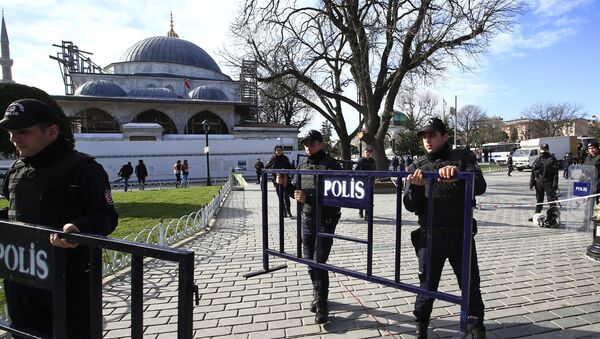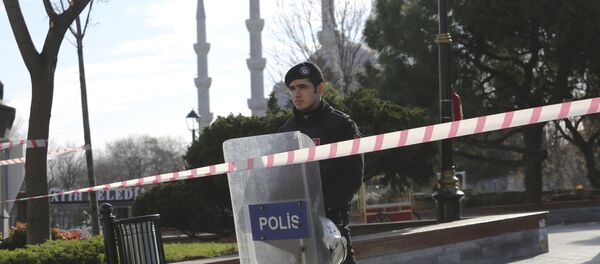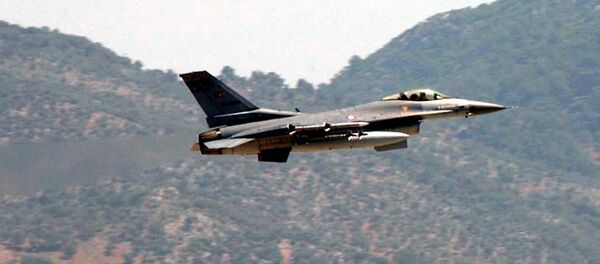First of all, the attack hasn’t affected the country’s $30 billion tourist industry, as it occurred in mid-January, in the lull following New Year celebrations. If it was conducted earlier at the same site in front of the Blue Mosque, it would likely have killed far more foreign tourists.
Secondly, it turned out that the Syrian bomber, Nabil Fadli, deliberately uncovered his identity to the authorities prior to the attack. He arrived in Istanbul as a refugee and gave away his fingerprints, threatening his purported attack, Telesur noted.
And, finally, Daesh hasn’t yet claimed responsibility for the attack.
Following the attack, Turkish Prime Minister Ahmet Davutoglu accused Syrian authorities of collaboration with Daesh and hinted that some “certain foreign powers” could have conducted the attack using the Daesh as a cover.
A similar statement by Davutoglu made in October in the aftermath of the Ankara bombings sheds light on the prime minister’s stance, Telesur TV pointed out. He then called the capital bombing a “cocktail terrorism” and laid responsibility for the attack on coalition of organizations including the Kurdistan Workers Party (PKK), Daesh and and the Revolutionary People’s Liberation Party-Front (PYD).
Turkish officials keep claiming they are in battle with Daesh, reportedly killing up to 200 militants in one attack, but Telesur concluded that references to the Kurds regularly emerging in political speeches may point to the real goals Ankara is actually pursuing.





